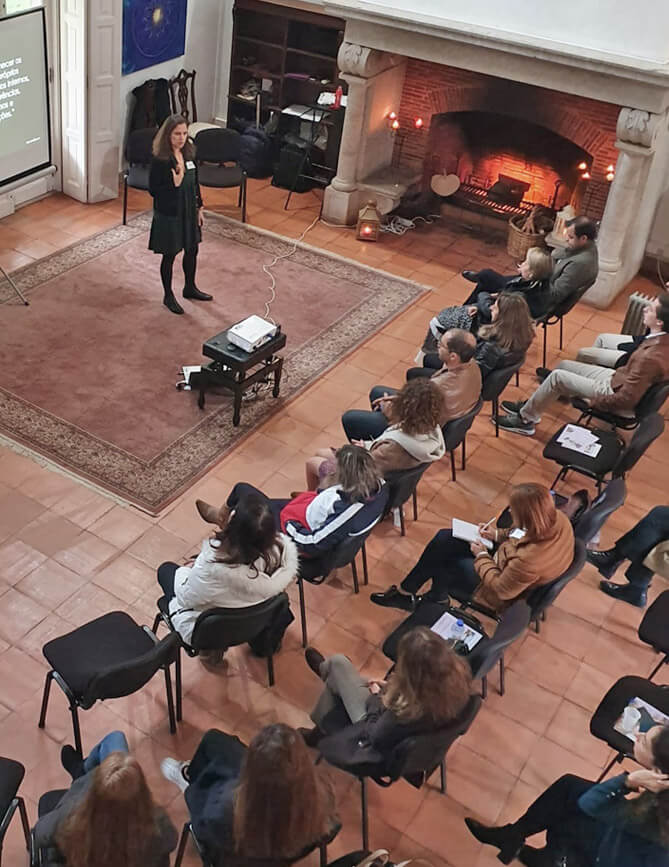Holiday period is usually awaited with enthusiasm. Even with some anxiety. We feel that we will finally have the opportunity to stop, have time for ourselves and those we love. Enjoy calmer and more relaxed environments. Forget about work for some time and dedicate yourself to that you like: reading, swimming, resting, socializing… Eventually, even start some activities that we have planned for calmer moments; exercise, meditation, organizing the house…. In fact, holidays usually create an expectation of letting go of stress and creating moments of greater relaxation, rest and calm.
I believe that the vast majority of us already understand that this process is not easy. For many, vacations bring another type of context with its own challenges: children at home, contact with family members or environments that cause us anxiety, travel arrangements, financial challenges, impossibility of reconciling family vacations, among others… Even for those who manage to have a more favourable and pleasant holiday context, it is not easy from one moment to the next to “disconnect” from work, worries and simply enjoy.
There is no miracle solution. Being able to stop and enjoy each moment with presence and greater awareness is something that is cultivated and trained not only on vacations. But without a doubt they can provide an opportunity to do so more intentionally.
I leave you with some tips from my personal experience (which actually continue to be a challenge for me, but which I feel have helped!):
Create an intention: changing routines or creating new habits is usually not an easy task and we quickly return to our patterns. Creating an intention (in this case for my vacation) helps me get off autopilot and make time and space for what I consider important and priority. The intention (which must be of good!) must always be more related to you and the way you react than to expectations in relation to others. And it can be different for each one: taking care of me, connecting more with others, having moments of serenity, avoiding toxic environments, gaining more energy… You can write your intention somewhere where you can easily review it and it can serve as a “lighthouse” for these days.
Disconnect from work and technology: it may be easier for some than for others, depending on your work and/or function, but it is always possible (and fundamental) to do something. If you can, avoid connections with work or set limits for yourself (and communicate them to others), such as forwarding topics and tasks in advance to another colleague who replaces you, checking your email only once a week or just replying to messages or emails that indicate “urgency”. Take advantage of these days also to create more human connection and less technological, also establishing limits in contact with technology, television and social networks. You can invite those who are with you to do the same, but don’t give up on your purpose even if others don’t.
Reserve time for yourself and for self-care: Reflect on what gives you energy and makes you feel good (with the help of a journaling exercise for example) and integrate this into your daily life (I confess that sometimes I even have to put it on the agenda!). It could be going for a coffee with a friend, sleeping more hours, taking a walk, distributing tasks, going to the beach alone, listening to music, whatever. It could be a whole day or 15 minutes of your day… it starts however you can. If we’re not okay, we will not okay with others.
Be grateful: we all have challenges and setbacks, and the vacation period can easily awaken some. Consciously practicing gratitude (through meditation or writing 3 things you are grateful for each day, for example) is a way to cultivate resilience and feel better.
Meditate: in lotus posture, sitting in a chair or walking; with the help of guided meditation audio or in pure silence; for 5 minutes or 40…. Give yourself time and space to feel yourself. However you are. With curiosity, kindness and without judgment.
Cultivate presence: use all the opportunities that the day offers you to practice Mindfulness in an integrated way. Feel your body and all its sensations when you dive into the fresh water of the sea or river or when you go out and feel the heat on your skin; use all your senses when eating the slice of watermelon or a cake; listen attentively and presently to the person who is talking to you; appreciate the beauty of your sleeping child or your mother’s wrinkled hand; be dazzled by the smell of the pine trees or the sound of the ocean waves…Let it flow: Set the intention, but let go of expectations (and for the holidays we usually create a lot)! The day-to-day is already made up of a lot of planning, demands, “to do list” and guilt for not doing what we think we have to do. Stopping, breathing and remembering your intention can already transform the experience of each moment. As Zen master Suzuki Roshi said: “The most important thing is to remember what is most important.”

